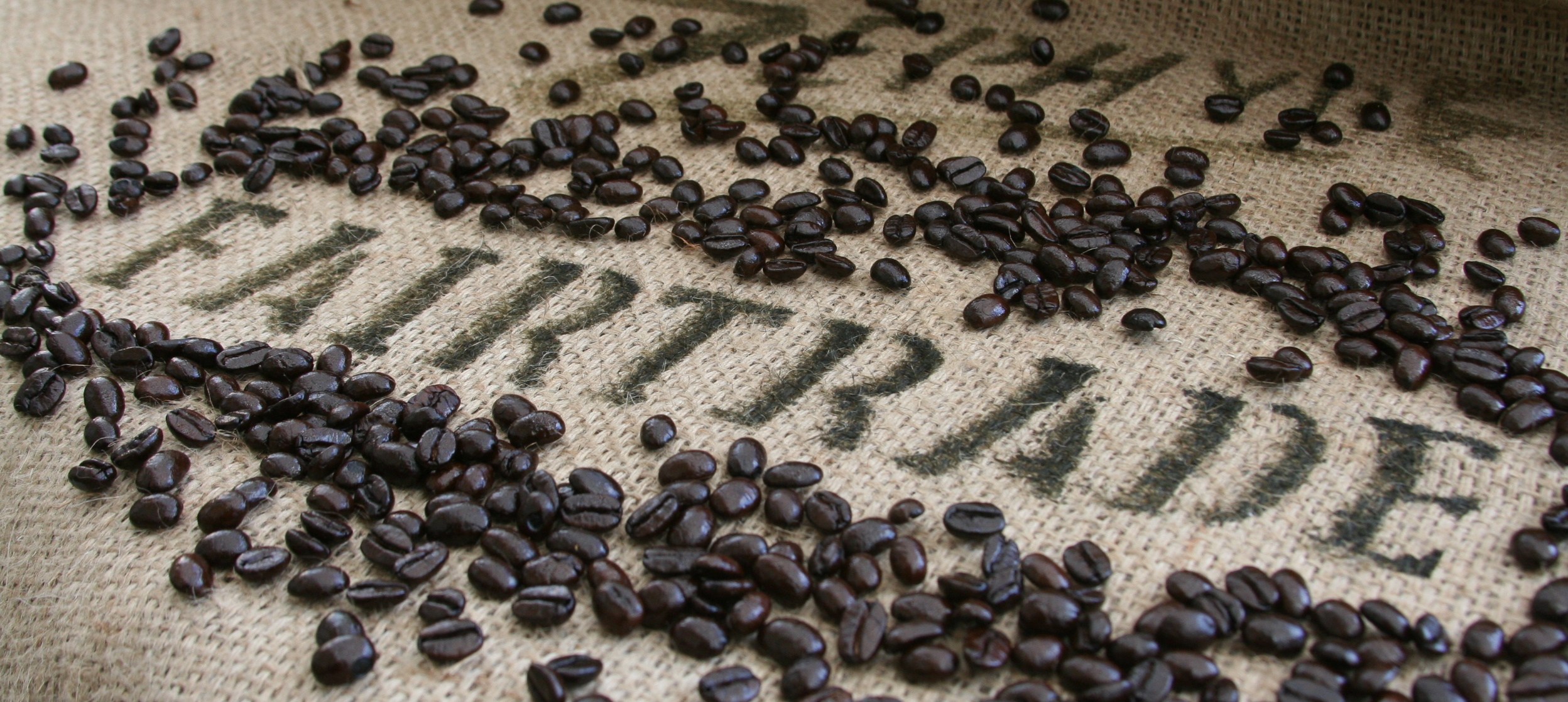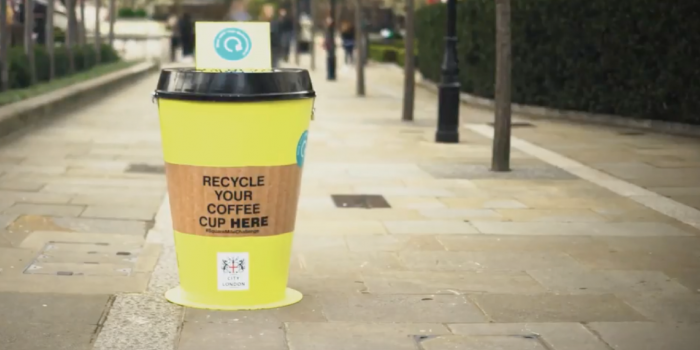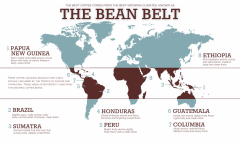Black Gold: unfair Coffee: BLACK GOLD documents how coffee drives social change
For professional baristas, please follow the coffee workshop (Wechat official account cafe_style)
Many years ago, because of the movie Blood Diamond, there was a lot of discussion about the luxury jewelry that caused disaster, exploitation and war in the distance but Bling Bling around us, even though most of us could not afford diamonds at all. By contrast, coffee can be said to be a daily necessity for most people. We almost have a cup of coffee when we are awake, tired, anxious, relaxed, happy and sad, but we seldom think about the blood and sweat of the third World countries.

"We hope that while everyone drinks the cup of coffee, they can also think about the poverty, cultural, ecological and political issues faced by coffee farmers, and think about the possibility of changing the status quo." In 2011, Dean Cycon, 58, sparkled in his eyes when he talked about promoting the concept of "Fair Trade Coffee" in Taiwan.
Embrace social justice
Human rights lawyers run away from the system
At the end of the Vietnam War, American human rights lawyers pushed the anti-war movement, which deeply moved Dean Cycon, who was still very young at that time, so he chose to work as a lawyer, believing that this was a lifelong career that would enable him to achieve "social justice" (Social Justice). After becoming a lawyer, Cycon devoted his expertise to aboriginal human rights, anti-nuclear and other social movements, and tried to seek justice for the environment of unequal exploitation and the value of human rights in the rule of law system.
In 1988, a speech focused Cycon's attention on poor coffee farmers around the world. In Cycon's eyes, these coffee farmers are not only at the end of the global capitalist exploitation system, but also mostly economic, cultural and political, especially racial weakness, which is in line with the aboriginal issues that he has always been concerned about. As a result, Cycon and coffee formed an inextricable bond.
At first, Cycon tried to go directly to the place of origin to buy raw beans directly from small farmers at a better price, eliminating the exploitation created by middlemen's "mass low-price purchases". Later, Cycon found that this behavior was at best a "Cherity" and could not expect any real social change. So, under the premise of all capitalist pursuit of profit, apart from the "charity" of the "fair" coffee "trade" how to achieve?
"so if we want to change this system, change the imperfect science of the so-called 'economy', only by promoting social change and establishing a more equal system can coffee farmers in poor countries get the income they should have."
Based on his years of experience as a lawyer, Cycon pointed out that although it is still possible to achieve social justice in the rule of law, it means that actors can only struggle within the system, and it is difficult as a lawyer to promote change if the law itself conflicts with other social models.
The same logic is the same in a free economy and trade. The basic profit equation of capitalism is "buy low and sell high" and "the market determines the price". However, Cycon found that no matter how much coffee is consumed in rich countries, coffee farmers in third world countries are still extremely poor, meaning that the vast majority of profits are monopolized by "middlemen" between "consumers" and "producers", which is the problem of distribution, not the fault of the market. In addition, Cycon also stressed that the price of coffee depends not so much on the quality of the product as on the stock market and futures.
As a result, Cycon began to promote Fairtrade coffee, trying to make production and consumption costs more "reasonable", rather than the current plight of profiteers and small coffee farmers. In other words, Fairtrade is not a consumer movement, let alone charitable giving; it is a system that tries to make distribution more reasonable. Coffee farmers get reasonable profits, consumers pay reasonable prices to enjoy coffee delicacies, while middlemen only charge reasonable profits.
In this way, after visiting the major coffee producing areas in the world, Cycon set up the NGO organization Coffee Children (Coffee Kid), which aims to promote fair trade, and the world's first "coffee cooperative" (Coffee Cooperative) composed of roasters. Cycon believes that by solving the problem of exploitation of coffee middlemen, small coffee farmers can improve their economic difficulties, and the related cultural, economic, environmental and disease problems can also gradually see opportunities for change.

The aroma of coffee wanders around the back
Small coffee farmers who do not live in HOLD
Before introducing how Fairtrade coffee tries to solve the problem, it is necessary to briefly introduce how the traditional coffee trade works. First of all, coffee producers can be divided into two categories: small-scale farmers and large farms that grow a single variety of coffee on a large scale. Let's start with the former.
Small coffee farmers in many third World countries do not even have the ability to handle raw beans and roast (as is common in Yunnan), so the coffee they produce must first be sold to merchants who are able to handle and roast raw beans, usually roasters. Roasters buy coffee from many small farmers and then sell it to exporters, who usually work with many roasters. Then, just like general international trade, exporters sell to importers and importers and then sell them in batches to large and medium-sized plate wholesalers, while consumers are at the bottom of the industry and usually can only drink "very expensive but not noble" coffee.
OK, so what's wrong with mass production? Yes, first of all, many large-scale farms will have a crowding out effect on small farmers, and very poor small farmers will turn into very poor farm workers, and secondly, many large farms will cut down virgin forests and reduce animal and plant diversity. Large-scale cultivation of coffee is also very bad for the ecology. The most classic example of this is the case of Starbucks Coffee (Starbucks), which claims to have a positive contribution to Gemadro Estate, which is "environmentally friendly" and "sustainable".
To put it simply, the middleman earns a lot of profits from a cup of coffee, so even if consumers buy coffee at an extraordinary price, coffee farmers are still poor enough to take off their pants. The ecology of the coffee trade is probably quite similar to the "sweaty mobile phone" that has been paid more and more attention in recent years. IPhone is still expensive and trendy, workers' buildings are still jumping, and the one who is really making a lot of money is not even Foxconn.

The premise of fair trade is that "fairness" is not "profit"
What Dean Cycon is actually doing is minimizing distributional justice problems caused by middlemen extracting excessive profits. In short, if smallholders lack the skills to process raw beans, Cycon will try to find equipment or coach smallholders to form mutual cooperatives. Once cooperatives are in place, small farmers are first protected from the first layer of exploitation by smallholders and bakers in their home countries, and then have the means to supply quantities sufficient to meet the basic requirements of containers and thus protected from exploitation by exporters and importers.
Coffee shops and agents in rich countries interested in promoting fair trade would then be able to buy coffee directly from coffee cooperatives in their home countries, while bearing the cost of shipping it across the ocean. In this case, even if the agent offers the smallholder a better price (technically, not higher, but more "reasonable"), the final consumer will not get more expensive coffee.
Cycon says Dean's Bean, his own U.S. -based coffee distributor, sometimes sells coffee for less than chain coffee shops. Of course, the reason for low prices is not only to avoid the cost of middlemen, but also the objective of fair trade promoters, which is "fairness" rather than "profit". In addition, Cycon also uses South Korea as an example to illustrate that South Korea's coffee tariffs are too high, resulting in agents buying coffee directly from small farmers in the producing area at a cheaper price even if they absorb container freight by themselves.
In addition, buying coffee directly from small farmers rather than large farms, in addition to directly returning profits to small farmers, cooperatives, rather than financial groups, also has important environmental ecological significance. Cycon says many smallholders may be too poor to buy chemical fertilizer themselves, so they are "barely organic," but more indigenous smallholders he works with are themselves very ecologically conscious, and while growing organically, they will also try not to let coffee destroy ecological diversity.
"They [smallholder farmers] are very conscious of this and know that what they need is a sustainable, clean environment, and it's not our place to lecture them," Cycon said.

Become partners with coffee farmers
Assist in meeting local needs
In fact, Cycon's "precinct" doesn't just focus on coffee. "Empowerment" is always the most important project in the work of social movement organizations, as well as in Fairtrade. Cycon said that in addition to helping coffee farmers set up cooperatives and reduce the exploitation of middlemen, Fairtrade had better help farmers diversify their income and help them improve their management, marketing and public relations skills so that a cooperative can operate stably. As Cycon has repeatedly stressed, Fairtrade is not a charity, and helping coffee farmers to be independent is the most important job.
In order to diversify the income of coffee farmers, Cycon also helps them develop their handicraft production and planning capacity. He stressed that the marketing of Fairtrade goods should not allow consumers to buy with the mood of "doing good", because that essentially returns to "charity" rather than promoting social change. Cycon stressed that helping small coffee farmers to develop fair trade commodities that are "culturally distinctive" and "in line with social justice" and, more importantly, "practical" and in line with "market demand" is the permanent way.
In addition, Cycon is also around the world, helping many coffee cooperatives to set up wells, medical institutions, schools and other infrastructure to improve the lives of farmers.

Cycon: fair Trade for large Enterprises
Most of them just talk but don't practice.
"every cup of coffee can be Fairtrade coffee, because it is closely related to the economy. The key is not profit, but fairness. "
Committed to promoting Fairtrade coffee, the most frequently asked question for Cycon is "how much do you earn?" which makes him feel ironic. "faced with such questions, I always answer them, enough for me, that's all." Cycon said that Fairtrade should not aim to maximize profits, but to give reasonable treatment to producers, consumers and middlemen on the premise of social justice and fairness. For Cycon, it is enough for employees to enjoy reasonable treatment and 100% medical assistance, which is almost enough.
Cycon always has a lot of complaints when it comes to big coffee agents. He believes that large chains such as Starbucks are often full of "ecological sustainability" and "fair trade", but in fact they have done very little at all. they often only buy a very small amount of Fairtrade coffee, but constantly expand their publicity. It's like he's trying his best to promote fair trade.
"Big companies always think that if they pay a little money, take some pictures at the origin, and then do nothing, they can continue to buy coffee at a low price and sell it to consumers at a high price. At the same time, they will never forget to talk to you about the concepts of sustainability, community management and fair trade, "Cycon criticized.

Call on Starbucks to work together to promote fair trade
In order to enable more people to learn about the sufferings of coffee farmers through coffee, Cycon collected his work notes from Ethiopia, Kenya, Peru, Colombia, Guatemala, Mexico, Nicaragua, Sumatra, Papua New Guinea and other countries for more than 20 years to complete the book "urgent from Coffee producing areas", which was previously available in English and Korean, and the Chinese is the second translation after Korean. Cycon hopes that in the future, the book will also be translated into Japanese and Spanish, because the Fairtrade market in Japan is larger, and if translated into Spanish, he can share it with many coffee farmers.
Ironically, even though Starbucks is almost the coffee maker that does not support fair trade in the eyes of Cycon, every time you buy a Chinese version of "dispatch from Coffee Origin", you can exchange the volume for a free cup of Starbucks daily selection coffee, and the general manager of Unified Starbucks is even on the recommended list.
In response, Cycon first stressed that he did not know how Chinese publishers work, and that if he knew, it would be impossible for his book to have anything to do with Starbucks. Cycon then took it easy, saying that he hoped that every reader who got coffee coupons would go to Unified Starbucks to express their desire for Fairtrade coffee so that his book could have real effect.
"what we want to do is to promote social change, and if more people slowly change their thinking about fair trade and think it is reasonable and possible, then we have a chance to achieve fairness and justice. Five hundred years ago, European farmers never thought of owning their own land, but now everything is different. Social change will take place from everyone's perception, and we hope Fairtrade coffee will be the same, "says Dean Cycon.
Author: Zhong Shengxiong
Source: public TV News
The following video needs to move a ladder.
Black Gold: unfair Coffee: BLACK GOLD
Important Notice :
前街咖啡 FrontStreet Coffee has moved to new addredd:
FrontStreet Coffee Address: 315,Donghua East Road,GuangZhou
Tel:020 38364473
- Prev

The truth about coffee paper cups: only 1% of paper cups are recycled
Professional baristas Please follow the Coffee Workshop (Wechat official account cafe_style) that only 1% of paper cups are recycled. In 2016, BBC filmed a war on waste (Hughs War On Waste) program on Hugh, including an episode that revealed the truth about the recycling of coffee paper cups. According to the program, about 7 million coffee paper cups are discarded in Britain every day, which is equivalent to 2.5 billion a year and needs to be cut.
- Next

The day of coffee extinction is approaching? Experts predict that global coffee production will disappear by half by 2050.
Professional baristas please follow the coffee workshop (Wechat official account cafe_style) Coffee is basically easy to get and taken for granted, regardless of taste. But will there be no more coffee one day? Can you imagine that even Starbucks doesn't have coffee to buy? This is not an apocalyptic prophecy, you and I, coffee will not disappear in our lifetime, no
Related
- What brand of black coffee is the most authentic and delicious? what are the characteristics of the flavor of the authentic Rose Summer Black Coffee?
- Introduction to the principle and characteristics of the correct use of mocha pot A detailed course of mocha pot brewing coffee is described in five steps.
- Which is better, decaf or regular coffee? how is decaf made?
- How much is a bag of four cat coffee?
- How about four Cat Coffee or Nestle Coffee? why is it a cheap scam?
- Which is better, Yunnan four Cats Coffee or Nestle Coffee? How about cat coffee? is it a fake scam? why is it so cheap?
- How about Cat Coffee? what grade is a hoax? which instant coffee tastes better, four Cat Coffee, Nestle Coffee or G7 coffee?
- Process flow chart of coffee making-Starbucks coffee making process what coffee tastes good at Starbucks
- The top ten best coffee beans in the world Rose summer coffee or Tanzanian coffee tastes good
- Yunnan four cat coffee is good to drink?_four cat coffee is a big brand? four cat blue mountain coffee is fake?

